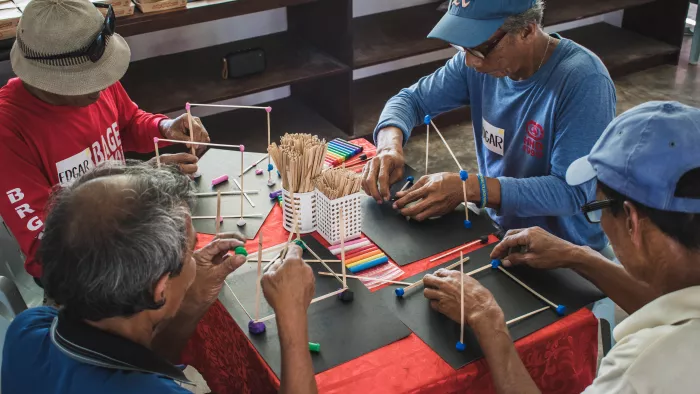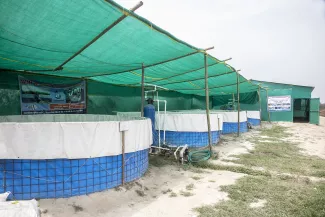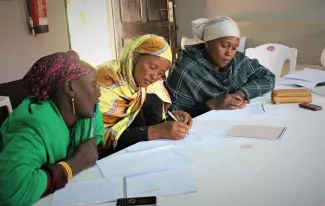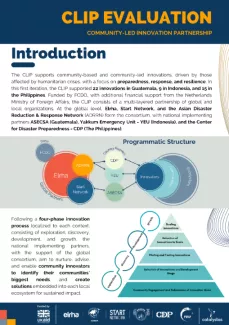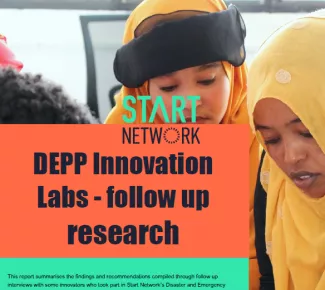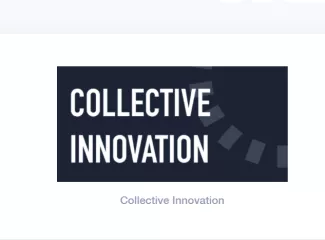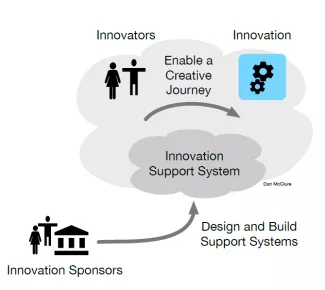Start Network was born as an innovation, with the intention of challenging traditional humanitarian programming and processes. From the beginning, we have been innovating collectively with our members – and now we are doing this with our hubs.
We try out new initiatives that tackle specific issues, such as finding new ways to make humanitarian finance more efficient and transparent. But our ambition is wider: to use innovation as a tool to shape a more effective humanitarian system.
Innovation is not about technology: it is a way of thinking. For us, it is a process that involves different ways of working and experimenting. Some aspects include:
- working with hubs to shape our new infrastructure, based on our vision of a locally led humanitarian system
- supporting user-centered innovation – new ideas coming directly from the communities that need them
- scaling up these locally led ideas by sharing the ones with the most potential and applying them across the network
- using social innovation methodologies such as design thinking and applying them to the humanitarian sector
- changing our way of thinking so that our teams and members are comfortable experimenting, adapting and building new partnerships for change.
Community-led Innovation
We believe that people affected by crises are best placed to address their own needs. We aim to foster innovation at a local and community level, recognising the innate innovation capacity that is within communities and support community innovators in developing and testing their solutions.
Examples of Start Network innovation initiatives
-
The DEPP Innovation Labs (2017–2019). We facilitated the creation of local innovation labs in four countries, where local innovators could develop solutions to humanitarian challenges in their location.
-
We invited members and their partners to submit innovative ideas that addressed problems within humanitarian agencies or local communities. The winning teams received funding and technical support to implement their solutions on a wider scale.
-
Crisis Response Resilience lab. A radical, action-focused learning programme for community-led impact in the aid sector. Teams and individuals were invited to join a collective re-envisioning of the humanitarian sector, based on group wisdom, experimentation, and action-learning.
-
Community-led Innovation Programmes. Working with Hubs to create local innovation spaces and support community innovators so they can identify the humanitarian problems that matter in their communities and create solutions based on local knowledge and context.

